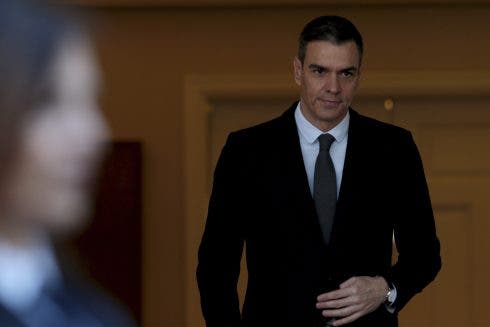SPAIN’S Socialist Prime Minister Pedro Sanchez has abandoned efforts to reach a cross-party deal to pass a budget for this year, after snap elections were called yesterday by the regional premier of Catalunya, Pere Aragones of the Catalan Republican Left (ERC).
Sanchez is governing in coalition with leftist alliance Sumar, but lacks a working majority in the Congress of Deputies. This means he needs the support of smaller parties – including ERC, among others – to pass legislation, including the all-important budget.
In the wake of Aragones’s decision to bring forward the elections from February 2025 to May 12 of this year, Sanchez decided to freeze talks to agree on the 2024 budget, Spanish daily El Pais reported.
Instead, under the leadership of Deputy Prime Minister Maria Jesus Montero, the government will start to work on next year’s budget plan, which will have to be agreed with a range of mostly nationalist parties.
In the meantime, the 2023 budget will remain in place until the new one can be agreed by Congress.
The move has once again called into question the stability of the government, and whether Sanchez will be able to govern for a full term or will be forced to call new elections.
Government insiders, however, flatly deny that the legislature will have to be called short, and insist that the prime minister continues to enjoy sufficient support to stay in power.

The Socialist leader took office in November 2023 after securing the backing of a majority of lawmakers, despite having lost the July general election to the conservative Partido Popular. The latter group also fell short of a majority at the polls, however, and unlike Sanchez was unable to drum up enough support to form a government.
Sources from the administration told El Pais that the prime minister believes there is no point in continuing with negotiations during the campaign leading up to the Catalan elections, given that the two parties from the region he needs for support – ERC and the hardline Junts pel Si (Together for Yes) – will up their funding demands in order to curry favour with voters.
“The call for elections in Catalonia alters the political chessboard,” Montero told radio network Cadena SER. “The budget will be rolled over. Realistically, we must take advantage of the [efforts already made] and these pre-agreements to work on the budget for 2025.”
The snap elections in Catalunya are the latest in a long line of unexpected twists in Spanish politics. Barely a few days ago, Sanchez told reporters during an informal conversation that he had the support from other parties to pass a budget both this year and the next.
Meanwhile, the elections were called just a day before Congress was due to debate, and potentially approve, the controversial amnesty law agreed between the government, ERC and Junts. If passed, this legislation will see anyone convicted or facing charges for their involvement in the Catalan independence drive over the last 10 years pardoned.
The highest-profile figure who stands to benefit from the law is Carles Puigdemont, the former premier of the Catalunya region who has been living in self-imposed exile in Belgium since fleeing Spain in 2017 to escape arrest for his role in the independence drive that year.
Read more:
- Snap election called in Spain’s Catalunya region after parliament rejects budget proposal
- Spain’s ruling Socialists reach controversial deal with Catalan separatist parties over amnesty law









